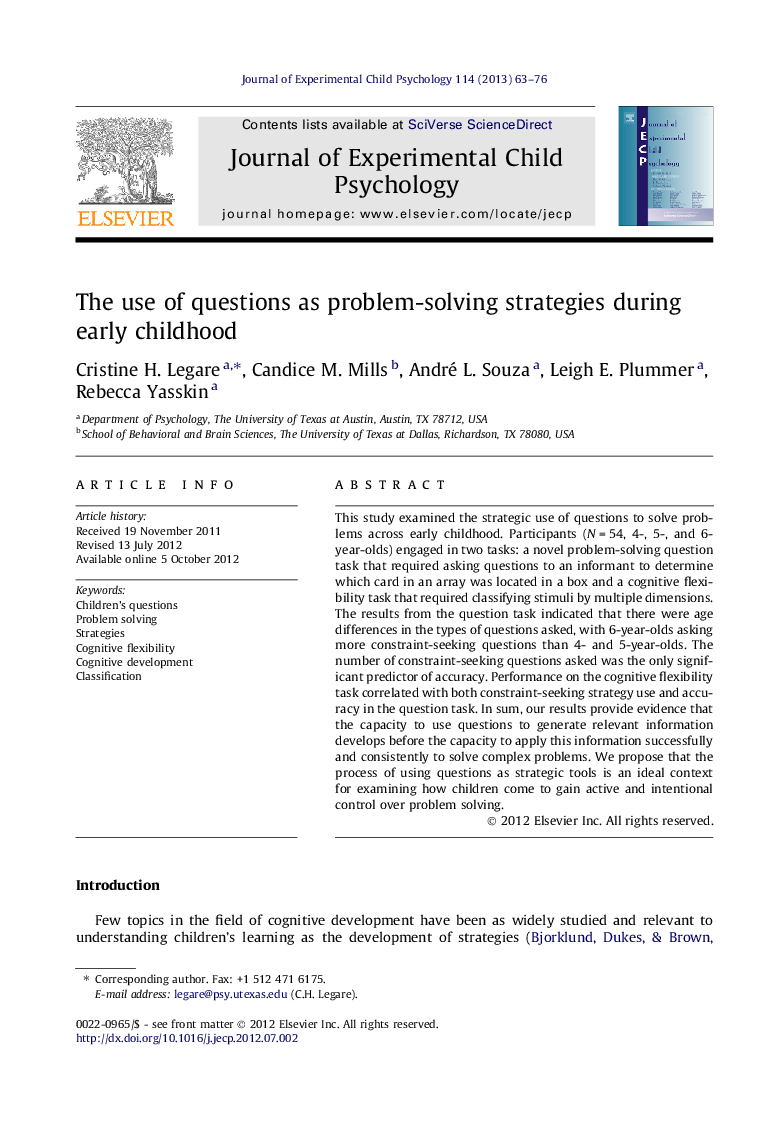| کد مقاله | کد نشریه | سال انتشار | مقاله انگلیسی | نسخه تمام متن |
|---|---|---|---|---|
| 918159 | 919458 | 2013 | 14 صفحه PDF | دانلود رایگان |

This study examined the strategic use of questions to solve problems across early childhood. Participants (N = 54, 4-, 5-, and 6-year-olds) engaged in two tasks: a novel problem-solving question task that required asking questions to an informant to determine which card in an array was located in a box and a cognitive flexibility task that required classifying stimuli by multiple dimensions. The results from the question task indicated that there were age differences in the types of questions asked, with 6-year-olds asking more constraint-seeking questions than 4- and 5-year-olds. The number of constraint-seeking questions asked was the only significant predictor of accuracy. Performance on the cognitive flexibility task correlated with both constraint-seeking strategy use and accuracy in the question task. In sum, our results provide evidence that the capacity to use questions to generate relevant information develops before the capacity to apply this information successfully and consistently to solve complex problems. We propose that the process of using questions as strategic tools is an ideal context for examining how children come to gain active and intentional control over problem solving.
► Young children’s use of questions as problem-solving strategies was examined.
► Preschool children engaged in novel question and cognitive flexibility tasks.
► Older children used constraint-seeking strategies more than younger children.
► Constraint-seeking strategy use predicted question task accuracy.
► Constraint-seeking strategy was correlated with cognitive flexibility measures.
Journal: Journal of Experimental Child Psychology - Volume 114, Issue 1, January 2013, Pages 63–76